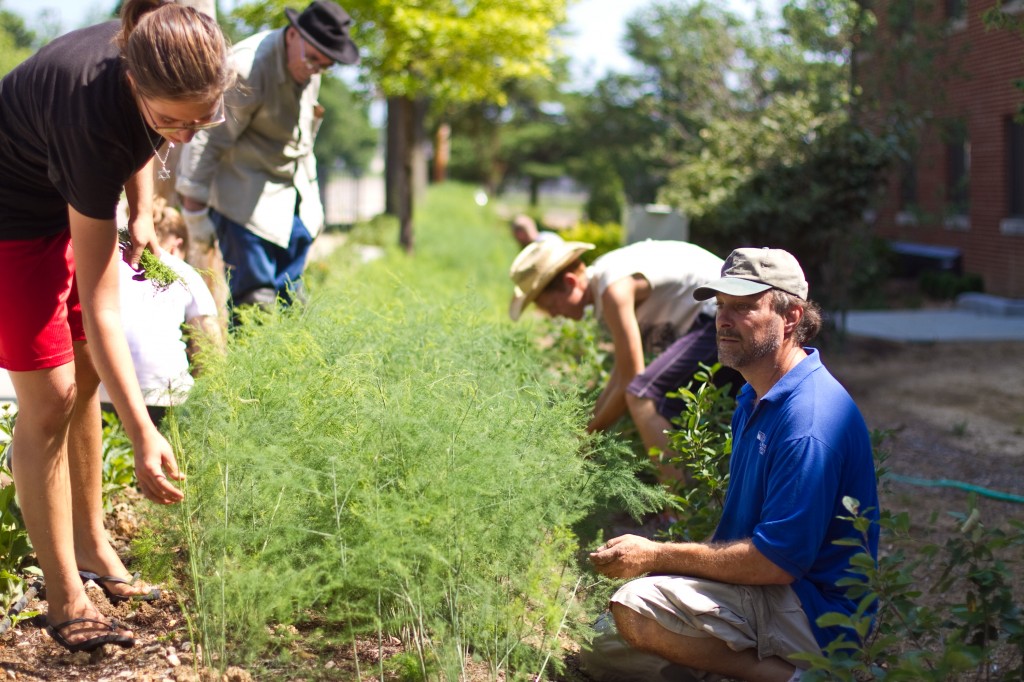HARRISONBURG, VA. – Future Eastern Mennonite University (EMU) students will not have to go far to enjoy an apple, pear or fig on their way to class.
Will Hairston, EMU grounds supervisor, and his team, have worked throughout the summer to cultivate and maintain edible gardens on campus.
“A few of the trees are already bearing fruit and we hope to have more plants producing shortly,” said Hairston.
“When these plants reach maturity and are producing, we hope to supply the cafeteria and have student groups harvesting them,” added Hairston.
Edible gardens have been around campus for years, according to Hairston, and will become more prominent thanks to a grant from the student group Earthkeepers. Hairston was able to buy more than 1,000 plants for landscaping around the Elmwood dormitory, turf field and Suter Science Center.
“We have apple and pear trees along the hill behind Roselawn dormitory and persimmon and pau pau trees around the EMU turf field.”
In addition, Hairston also maintains fig and crab apple trees, grape vines and cornelian cherry and black raspberry bushes.
Aly Zimmerman, a junior from Staunton, Va., said the push for edible landscapes around EMU began with the on-campus showing of the film “Food Inc.” The film focuses on the industrialized food system and its effect on environment, health, economy and workers’ rights.
“Almost immediately after see the movie Earthkeepers met and decided we needed to do something,” said Zimmerman.
Earthkeepers began using what they learned in “Food Inc.” to make changes around campus, including expanding the edible gardens. In addition to the fruit trees and plants that already existed they planted asparagus beds around the Elmwood dormitory and the Science Center. Asparagus can be harvested in March and April, so students will have ample opportunity to enjoy the vegetable before the end of the spring semester.
“We want to raise awareness to the availability and health benefits that these plants can provide,” said Zimmerman. “EMU is an environmentally aware university and we hope to attract more students to science and environmental sustainability through our work.”
Tyler Groff, a senior from Lancaster, Pa., adds that the edible garden landscapes around campus will also benefit from increased use of technology, specifically Google Docs.
“We will be able to schedule watering cycles for all plants to make sure that none are missed,” Groff said.
“We hope to build an interactive display that can showcase where each plant is on campus and how they can be best utilized,” he continued.
Groff, like Zimmerman and Hairston, notes additional benefits to edible gardens.
“Edible gardens can provide enjoyment and add a new experience to campus. Hopefully, this will get people thinking about other ways they can make an impact while they enjoy something grown right here on campus.”
